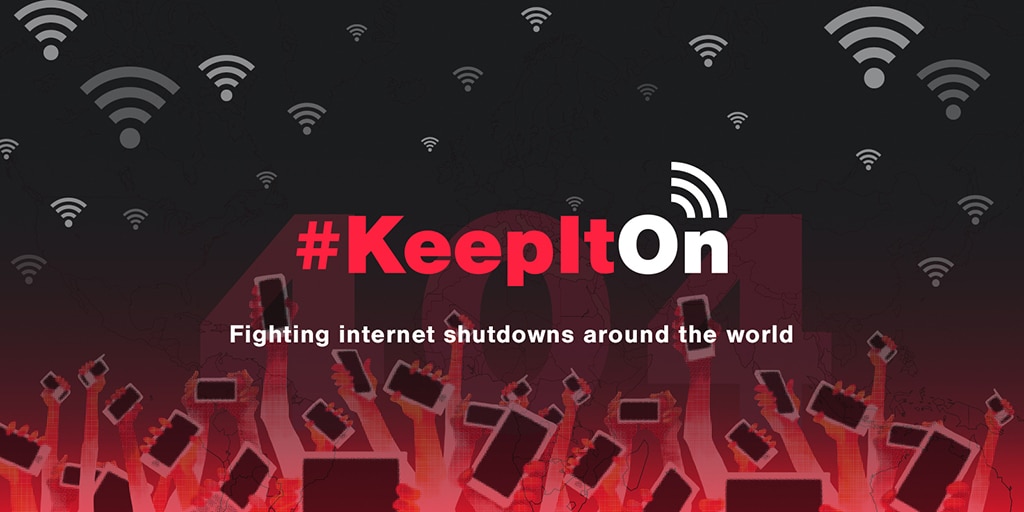For democracy to flourish, access to free and open internet is vital, especially throughout elections — and several are scheduled over the next few months. The internet plays a crucial role in enabling people to access information and stay informed on the election process, while providing space to participate in voting, engaging in public discourse, and holding elected leaders to account.
“Internet shutdowns are a blow to democracy, and an attack on voters’ rights across the globe,” said Felicia Anthonio, Campaigner and #KeepItOn Lead at Access Now. “Highly contested elections increase tensions, and spur demonstrations and public gatherings — keeping people connected will help keep people safe.”
“We have seen democracy tainted too often at the hands of governments,” said Berhan Taye, Africa Policy Manager and Global Internet Shutdowns Lead at Access Now. “Stifling a nation’s people through government-mandated internet shutdowns during elections — and other national events — must not continue. We’re calling out governments before they even hit the kill switch: keep it on during elections, keep it on in times of crises, keep it on all year round.”
Who’s voting and what are the risks?
Tanzania — October 28, 2020
With only days to go before the election, Tanzania is already censoring the population by blocking bulk SMS and bulk voice services, and allegedly censoring individual messages with election key words. In recent years, there have been increasing reports of human rights abuses perpetrated against journalists and activists, while lawmakers are adopting laws and policies to restrict and stifle freedom of expression, online and off.
Côte d’Ivoire — October 31, 2020
Civil society is appealing to stakeholders, including the government and internet service providers, to continue to invest in open, secure and free internet access for the entire duration of the election and beyond.
The United States — November 3, 2020
U.S. voters are preparing for a contentious election. The current president has indicated that he will not commit to a peaceful transfer of power, and has made moves to suppress the free flow of information, including his recent threat to block TikTok and WeChat messaging apps. Widespread demonstrations and public gatherings leading up to and following the election are expected, and it is essential that service providers do everything they can to keep people well connected during this period of uncertainty. Access Now is calling on telcos to ensure adequate bandwidth.
Myanmar — November 8, 2020
Residents in Myanmar’s Chin and Rakhine states continue to suffer through a lengthy internet shutdown which began in June 2019. Although the government restored 2G internet access in some of the affected townships, many people remain in the dark. As COVID-19 spread, residents in these states were denied access to timely health and public safety information, and human rights violations were potentially concealed. With elections scheduled for next month, it is imperative that access to the internet and digital communications platforms is free and open.
Ghana — December, 2020
In 2016, the government of Ghana kept social media platforms on throughout the elections even after the then Inspector General of Police threatened to disrupt them on election day. Ghana is among the few countries in Africa that hasn’t yet shut down the internet.
Who already voted and what happened?
Guinea — October 18, 2020
As the people of Guinea awaited the announcement of election results on October 23, the government shut down the internet. Taking place at a crucial political moment in the country, the shutdown denied millions of people access to vital information, and came amid reports of violence and election fraud. Civil society is making a public call to #KeepItOn.
Belarus — August 9, 2020
Since August 9, 2020, authorities have, on numerous occasions, blocked landline and mobile internet access, independent media websites, and social media platforms, including Facebook, Twitter, Instagram, and Vkontakte — a major Russian social media and networking service. Telcos and multinational companies including Sandvine and A1 Telekom Austria Group played roles in the censorship, and Access Now and partners are demanding that they take responsibility, denounce shutdowns, and establish measures to prevent any further blocking or network disruptions.
Burundi — May 20, 2020
As millions of Burundians went to the polls, the Pierre Nkurunziza government rushed to block access to social media platforms including Facebook, Twitter, WhatsApp, and YouTube.
Togo — February 22, 2020
On election day, the authorities in Togo blocked access to instant messaging applications including WhatsApp, Telegram, and Facebook Messenger on two of the country’s major network providers, Togo Telecom and Atlantique Telecom networks.
